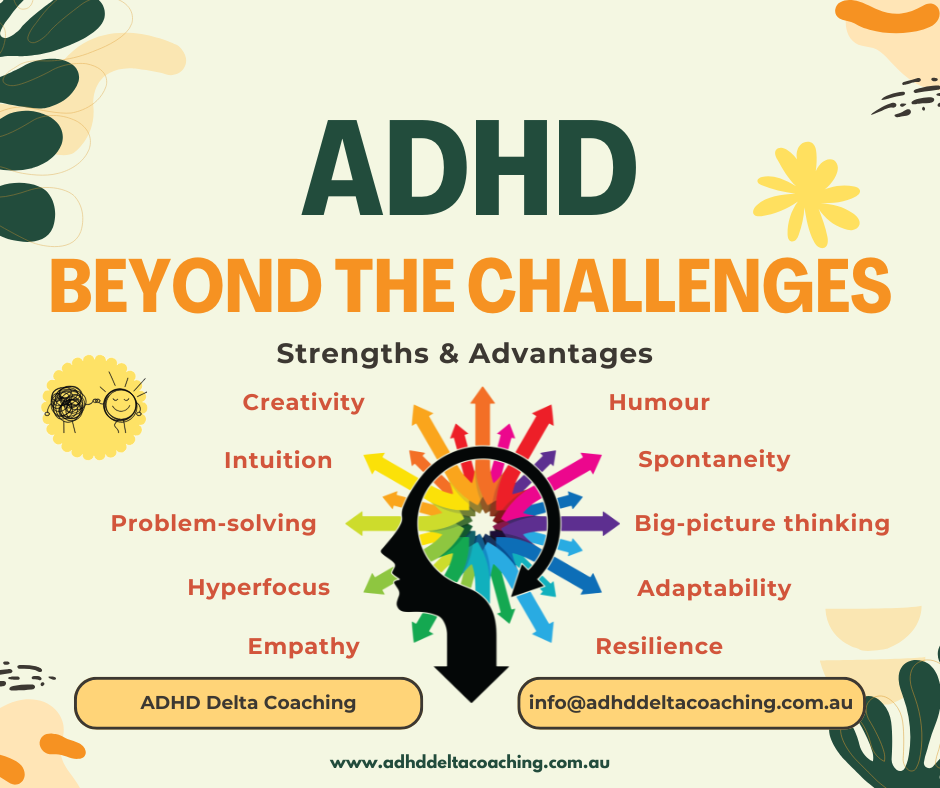Beyond the Symptoms - What is ADHD?
October is ADHD Awareness month, and it’s aimed at promoting accurate information sharing, increasing ADHD understanding and reducing stigma. What better time is there to write about ADHD than now?!
So, what exactly is ADHD beyond what we see on the surface? Let's dig a little deeper.
More than Meets the Eye
ADHD or Attention-Deficit/Hyperactivity Disorder isn't just about a kid who can't sit still, the student who drifts off in class, or an adult who's always losing their keys. It's a complex neurological condition that truly shapes how someone experiences the world. Unfortunately, it’s often misunderstood and boiled down to simple stereotypes, however it’s so much more intricate than just "distraction" or "excess energy." It actually impacts core executive functions like planning and managing emotions, and even how we connect with others. And the wild thing is, it looks different in every single person!
Beyond the Stereotypes
When you look past the common ideas, the true characteristics start to emerge. While "attention deficit" and "hyperactivity" are in the name, the reality is a rich tapestry of experiences. ADHD involves persistent patterns that can really get in the way of daily life and growth.
Inattention
This isn't just about struggling with boring tasks (though that's definitely a thing!). It can feel like your brain has a million tabs open, making it hard to sustain focus, organize your thoughts, manage time, or even just keep track of your belongings. And yes, those internal thoughts can be just as distracting as external noise!
Hyperactivity
For some, it’s visible – the fidgeting, the restlessness, the inability to stay seated. For others, especially adults, it's more of an internal hum, a constant need for stimulation that can be exhausting.
Impulsivity
This can manifest as blurting things out, interrupting conversations, or making decisions quickly without fully thinking through the ripple effects.
The Brain Behind ADHD
Behind all of this, the ADHD brain is actually wired a little differently. Research points to distinctions in the:
prefrontal cortex (responsible for executive functions like decision-making and impulse control),
basal ganglia (linked to motivation and movement), and
cerebellum (involved in timing and attention).
There’s also evidence of delayed brain maturation—for example, parts of the cortex may develop a few years later than in people without ADHD.
On top of that, key neurotransmitters, especially dopamine and norepinephrine (which are crucial for motivation and attention), often operate a bit uniquely in someone with ADHD. This helps explain why starting certain tasks feels almost impossible unless there’s immediate interest or urgency.
ADHD Across the Lifespan - Not Just a Childhood Condition
And here's a big one: ADHD isn't just a "kid thing." While many are diagnosed young, it's a lifelong journey for many others. The symptoms mature and shift as we do. What looks like overt hyperactivity in a child might become a more subtle internal restlessness or challenges with executive functions and emotional regulation in an adult. Many women, for example, grow up undiagnosed because their symptoms don’t fit the “classic” image of ADHD.
Strengths and Advantages
But honestly, it's not all about the challenges. I truly believe that ADHD also brings incredible strengths and advantages.
People with ADHD often possess:
Creativity and Innovation: the brain often make connections that others might miss, leading to truly out-of-the-box thinking and fresh solutions.
Hyperfocus: When they find something they're genuinely passionate about, they can dive in with an intensity that leads to amazing productivity and deep expertise.
Resilience and Adaptability: Navigating a world that isn't always designed for their unique wiring often builds incredible grit and the ability to pivot.
Energy and Spontaneity: That characteristic energy and impulsivity can translate into a contagious enthusiasm, a willingness to embrace new experiences, and a vibrant spirit.
So, when we stop reducing ADHD to just its symptoms, we begin to see the whole person behind the label. ADHD isn’t a character flaw or something to “outgrow.” It’s a lifelong condition that can be managed—and even embraced.
Living with ADHD - Strategies and Support
Living with ADHD is therefore about understanding your unique blueprint and finding the right tools and strategies to thrive. Here are a few things that can make a huge difference:
Diagnosis and Professional Support
Getting a proper diagnosis from someone who truly understands ADHD is the first crucial step. This can open doors to various supports, whether it's medication, therapy like CBT, or coaching.
Lifestyle Adjustments
Simple things like consistent exercise, nourishing food, quality sleep, and mindfulness can significantly impact symptom management.
Organisational Tools and Strategies
Finding systems that work for you – whether it's apps, planners, or unique ways of structuring your day – can be a game-changer for organization and time management.
Building a Support System
Connecting with others who "get it," whether through ADHD support groups or just trusted friends and family, offers invaluable encouragement and a sense of belonging.
Ultimately, the most important shift will be to recognise ADHD not as a limitation, but as a different way of operating in the world.
Yes, there are challenges—but there are also unique perspectives and strengths that come with it. By understanding its nuances, celebrating its strengths, and embracing effective strategies, ADHDers can truly thrive and lead incredibly fulfilling lives.
Final Thoughts
So, what is ADHD? It’s not a lack of discipline. It’s not about being broken or “too much.” ADHD is a neurobiological difference that shapes how people think, feel, and act. And when understood properly, it becomes clear that ADHD is not just about what’s hard—it’s about what’s possible.
Because beyond the symptoms lies something powerful: potential.
👉 Get in touch, if looking for a coach who can work with you to unlock that potential.





